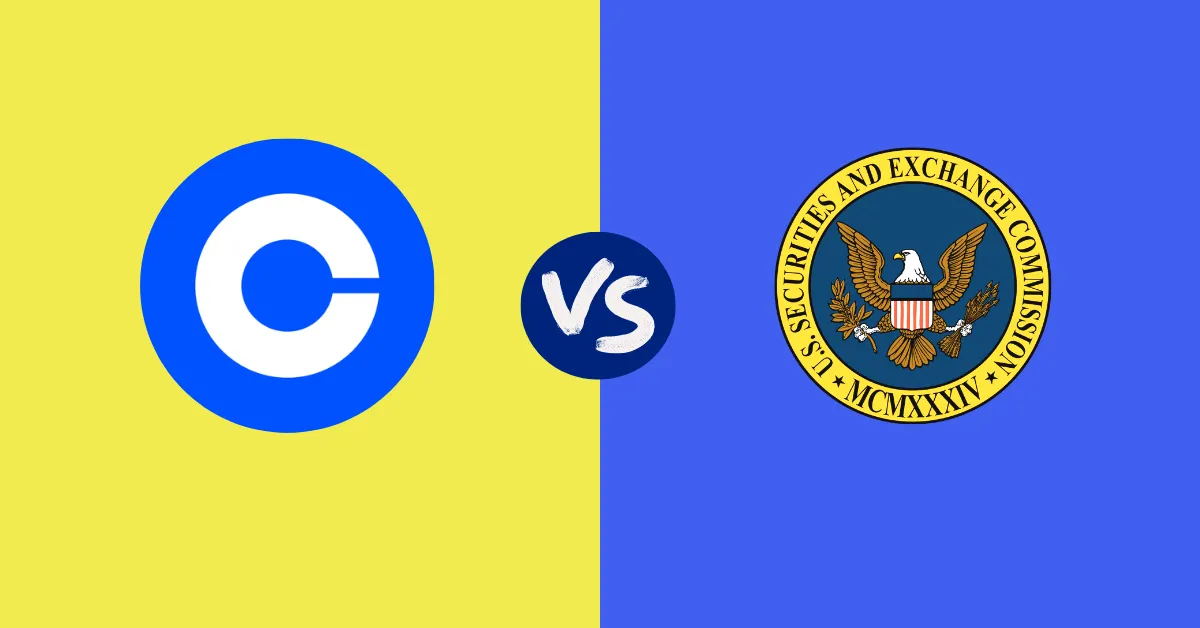Coinspeaker
Coinbase Faults SEC’s Rule on Decentralized Exchanges, Says Its ‘Irrational’
American exchange Coinbase has asked the US Securities and Exchange Commission (SEC) to withdraw its proposal that seeks to have all decentralized exchanges under its rule. The request was submitted via a Monday letter by Paul Grewal, Coinbase’s Chief Legal Officer, whose content also asks the agency to start all over again.
SEC Seeks an Umbrella Rule for All Exchanges, Decentralized or Not
According to the SEC, the rule wants a broader definition for the term ‘exchange’, such that it captures even the decentralized ones. The rule was first floated in 2022 and reopened for comments this April. If passed, the rule would mean that decentralized platforms would, as a matter of requirement, have to register with the SEC as alternative trading systems.
Since its first proposal, the rule has received hundreds of comments from major stakeholders in the crypto industry. Even lawmakers and traditional exchanges such as Nasdaq have filed comments. However, the Grewal-signed letter might just be the latest comment on the list.
In the letter, Grewal noted that it is an ‘irrational’ attempt by the SEC to assume that the same rules can apply to decentralized exchanges (DEXs) and the more traditional ones. An excerpt from the letter reads:
“Among other issues, DEXs can not comply with registration and disclosure requirements designed for legacy financial exchanges managed by centralized companies.”
Grewal also pointed out another part where the commission has so far failed. He says they still haven’t explained how these SEC-registered DEXs are supposed to facilitate the trading of digital assets. That is, even if they decide to go along with the existing rules of registration and disclosure.
For what it’s worth, SEC Chair Gary Gensler has repeatedly argued that crypto platforms must register with the agency. His reason is that most cryptocurrencies qualify as securities.
In April 2023, Gensler noted that many trading platforms fit the definition of an exchange, regardless of whether they are centralized or decentralized. That position formed the basis of the SEC’s decision to charge companies like Coinbase for operating as unregistered exchanges. For the same reasons, the commission also issued a Wells notice to Uniswap Labs, the creator of the decentralized exchange Uniswap.
Complexities of Proposed Rule Highlighted
Decentralized exchanges already face enough compliance challenges in determining which digital assets are classified as securities. However, there might be more problems.
Grewal pointed out that even if the SEC ultimately settles on a definition, there is no assurance that it will align with any previously considered definition used during the cost-benefit analysis of the Proposed Rule.
The CLO referenced the US Supreme Court’s decision in June, which overturned the Chevron doctrine. This doctrine, originating from the 1984 case Chevron U.S.A. Inc vs. Natural Resources Defense Council Inc, had established that courts should defer to federal agencies’ interpretations of ambiguous laws.
Grewal remarked that the elimination of Chevron deference makes it even less likely that courts will support the SEC’s broad interpretation of the Exchange Act’s terms beyond their intended scope.
Coinbase Faults SEC’s Rule on Decentralized Exchanges, Says Its ‘Irrational’





